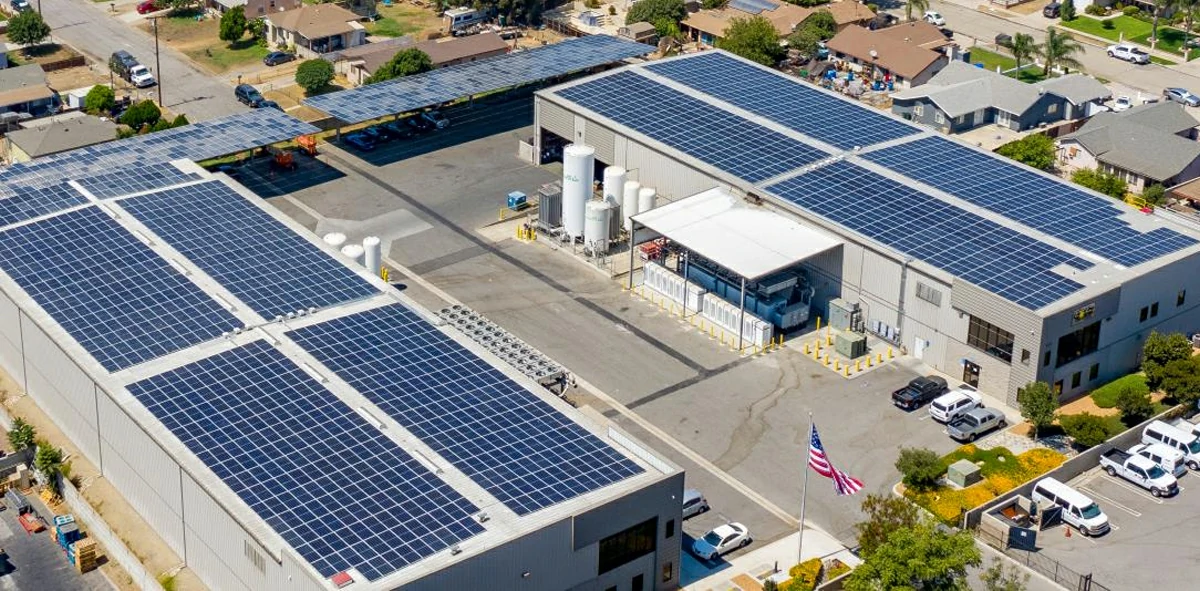
In a field often seen as a launchpad for temporary work, solar energy is quietly becoming a long-term career engine. Workers who begin by hoisting panels onto rooftops are now moving into roles that shape design plans, lead teams, and optimize entire energy systems. Freedom Forever Solar, a residential solar provider known for customized energy solutions, supports this progression through its federally approved Registered Apprenticeship Program.
With a focus on structured training, mentorship, and on-the-job learning, the company is helping build a workforce equipped not just to enter the industry but to grow within it. The solar sector is showing that with training, mentorship, and the right opportunities, today’s field technician can become tomorrow’s systems engineer.
Starting from the Ground or the Roof Up
Most careers in solar begin with hands-on roles. Rooftop installers, warehouse coordinators, and site assessors make up the front line of system deployment. These positions don’t always require prior experience, but they do demand reliability, attention to safety, and a willingness to learn on the job.
What often distinguishes entry-level solar work from other industries is the direct exposure to technical systems. Installers learn how racking systems are assembled, how panels are wired, and how electrical connections interact with inverters. These are not just manual tasks, but foundational lessons in how solar works.
Workers who take initiative, ask questions and engage with senior team members often find informal mentors. These relationships can become stepping stones to more advanced roles, especially when paired with supplemental training.
Real Examples in the Field
Career progression in solar doesn’t follow a single path. Instead, it reflects a broad set of options based on skill, interest, and opportunity. Here are a few common transitions seen across the industry:
- Installer to Crew Lead to Project Manager- Many rooftop installers move into leadership positions by demonstrating consistency and communication skills. Crew leads often supervise installation teams, ensure site safety, and coordinate with engineers. From there, project managers step in to oversee scheduling, budgets, and client communication.
- Installer to Electrician to Field Engineer- Installers who become interested in electrical work can pursue certifications or apprenticeships. With additional training, they may handle complex wiring, battery system integration, and troubleshooting. Eventually, these workers can move into engineering support, helping refine design specs and address field-level challenges.
- Warehouse Associate to Logistics Coordinator to Operations Manager- For those drawn to organizational roles, experience in parts inventory and procurement can develop into site planning, delivery coordination and cross-team management. Strong logistical skills are essential to scaling solar energy efficiently.
- Customer Service to Technical Support to System Analyst- Individuals in administrative roles can also rise by developing product knowledge and software fluency. Over time, they may work with monitoring platforms, track system performance, or assist with system optimization efforts.
Freedom Forever reviews industry needs to identify different support structures such as cross-training, mentorship, and defined advancement pathways that help entry-level workers accomplish long-term careers in the solar industry. Through initiatives like its federally approved Registered Apprenticeship Program, the company emphasizes skill-building and leadership development as essential components of workforce sustainability.
The Role of Training and Certification
While experience is crucial, formal training remains a key driver of career progression. Many solar workers pursue certifications from organizations like the North American Board of Certified Energy Practitioners (NABCEP) to validate their skills. Others take evening or online courses in project management, drafting software, or electrical code compliance.
Employers are increasingly offering tuition reimbursement, internal training programs or partnerships with local colleges to support worker growth. These investments pay off in the form of higher retention, greater team competence, and smoother system installations.
Hands-on labs, bootcamps and manufacturer-led equipment training also provide critical learning opportunities for workers ready to specialize. In an industry where products and processes develop quickly, continuous education is required. It is essential, and these are not just manual tasks but foundational lessons in how solar works.
Mentorship as a Career Catalyst
Mentorship plays an outsized role in shaping solar career paths. Whether formal or informal, having someone share knowledge, provide feedback and encourage the next steps can make all the difference.
Experienced electricians might guide new hires through safe wiring techniques. Project leads may show installers how to read plan sets or troubleshoot inverter errors. In many solar companies, the best mentors are those who themselves started in the field and understand the challenges new workers face. Mentorship isn’t just about passing down knowledge. It is also about affirming potential. When workers see someone who has advanced in their career, they’re more likely to believe in their ability to grow.
Navigating Transitions Across Roles
Switching tracks within the industry, say from installation to design or from logistics to sales, requires more than technical skill. It often involves learning to speak a new professional language, understanding different workflows, and building relationships across departments.
To support these transitions, some companies are introducing job shadowing programs or rotating roles that allow employees to explore different career paths before making a change. Others conduct internal promotions and offer step-by-step advancement roadmaps that outline how to qualify for new responsibilities.
At the organizational level, creating these pathways reduces turnover and helps cultivate in-house talent. At the individual level, it builds confidence and long-term motivation.
Long-Term Careers in a Rapidly Developing Industry
Solar energy is no longer a startup industry, but a maturing sector that requires leadership, expertise, and institutional knowledge. It means that long-term careers are not only possible but increasingly in demand. Systems engineers, regional managers, safety compliance officers and training coordinators are just a few of the roles that solar companies need as they scale. Many of these positions are filled by people who stay on rooftops, in warehouses, or at customer support desks.
The solar ladder has many rungs for those willing to invest in their learning and take on new challenges. And because the industry continues to expand into storage, EV infrastructure and grid services, the possibilities are still growing. The solar industry is proving that a green job can be more than just a short-term gig. It can be the start of a rewarding, upward-moving career. With the right support systems, workers can begin in entry-level roles and steadily rise into positions of leadership, technical expertise, or strategic oversight.
Building a strong workforce means building from within by supporting training, promoting mentorship, and making advancement visible and attainable. In solar, the path from rooftop to boardroom isn’t hypothetical. It’s already happening. For workers ready to climb, the next opportunity may be just one rung away.


